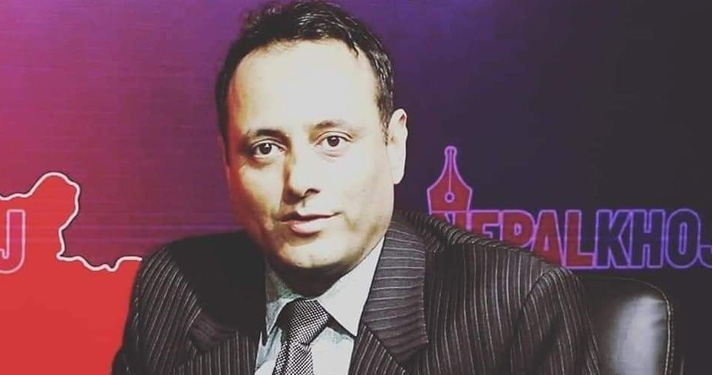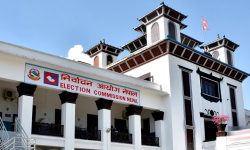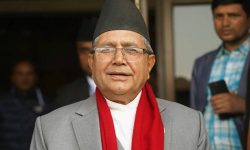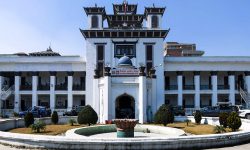Unconstitutional Step-Dissolution of the House of Representatives by Prime Minister K.P. Sharma Oli

The dissolution of the House of Representatives of the Legislature means the termination of all the members of the House of Representatives at the same time before the term of the House of Representatives stipulated in accordance with the constitution. The Prime Minister K.P. Sharma Oli has already been dissolved before the five-year term of the House of Representatives. This act is unconstitutional in accordance with Article 76,85,100 of the Constitution of Nepal and other constitutional provisions and the practice of dissolving the previous Parliament and the decisions made by the Supreme Court and the values prevailing in the world regarding the dissolution of Parliament.
The matter is currently pending in the Supreme Court. There is no dispute that the court will give its final verdict.When the House of Representatives is dissolved in this way, according to the constitution, the members of the House of Representatives will probably be appointed from the next election. In a democracy, elections to the House of Representatives are held by general election after the term of the House of Representatives ends on the date specified in the constitution. Before the term of the House of Representatives, the head of the executive is given the right to dissolve the House of Representatives on the basis of certain conditions. Except for certain conditions stipulated in the constitution, the head of the executive has no right to dissolve the House of Representatives in the constitution of a democratic country.
According to constitutionalism, it is rare for the parliament to be dissolved before the stipulated term. Thus, when the parliament is dissolved, there will be political instability in the country, unnecessary elections will have to be held in the country, a big economic crisis will be created, peace and security will be disrupted, dictators will rise without rule of law and many other problems will arise in the country. As a result, the country’s political, economic, social, cultural and other sectors will be affected and the country will fall into conflict and sometimes the people will have to flee the autocratic regime for a long time and will have to fight for democracy again. Therefore, the act of dissolving the parliament before the term of the parliament prescribed by the constitution is considered unconstitutional and illegal and the court has to decide on such matter seriously under the preamble of the constitution, article of the constitution dissolving the parliament, democracy and constitutionalism.
Defending the constitution is the main responsibility of the court in a democracy. Democracy can always be in danger if the courts do not protect the constitution. In a civilized society, the rule of law must be ensured by the courts. The dissolution of the House of Representatives is a serious matter. In the parliamentary system, it is possible to dissolve the parliament in accordance with the constitution in order to resolve the dispute between the executive and the legislature, but it is a precondition that the legislature-parliament does not allow the government to function. The prime minister cannot dissolve parliament just to secure his seat.
The constitution should clearly stipulate that the parliament can be dissolved. Under Article 74,76,85,100 of the Constitution of Nepal , K P Sharma Oli has not been given the right to dissolve the House of Representatives. The reasons and constitutional basis given for dissolving the parliament have been completely misused by K P Oli. Even President Vidhya Devi Bhandari has neglected and misinterpreted the constitution in such a serious way as dissolving the parliament which is contrary to the preamble of the constitution, article 1,2,61,76,77,83,84,85,93,95,100 of constitution. The constitution does not envisage the dissolution of parliament until a government is formed.
Article 76.1 of the Constitution provides that the leader of the party bringing the majority shall be the Prime Minister. Article 76.2 provides that if a party fails to get a majority, a member of the House of Representatives supported by two or more parties becomes the Prime Minister. Similarly, Article 76.3 stipulates that even if two or more parties can not form a government, the leader of the largest party will be appointed by the President as Prime Minister, who must take a vote of confidence within 30 days.
Article 76.5 provides that if the Prime Minister sitting in accordance with Sub-section 3 fails to cast a vote of confidence, a member of the House of Representatives can obtain a vote of confidence the President shall appoint the Prime Minister and a vote of confidence must be taken within 30 days.
If there is a possibility of forming a government according to the entire clause of Article 76, it will not be dissolved. In any case, the House can only dissolve if it cannot form a government.
Therefore, the dissolution of the House of Representatives ahead of the five-year term of the House of Representatives by the current Prime Minister K.P. Sharma Oli is an unconstitutional step in accordance with Article 76,85,100 of Article 76,85,100 of the Constitution of Nepal and other constitutional provisions and the practice of dissolving the previous Parliament and the decisions made by the Supreme Court and the values prevailing in the world regarding the dissolution of Parliament.








Comments